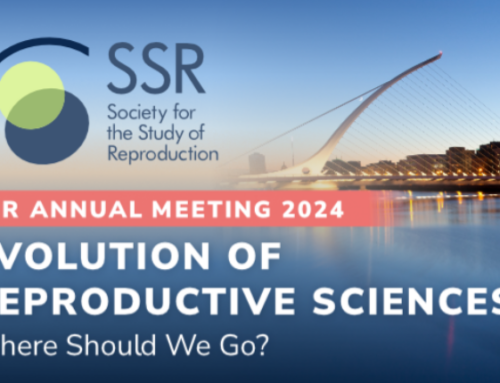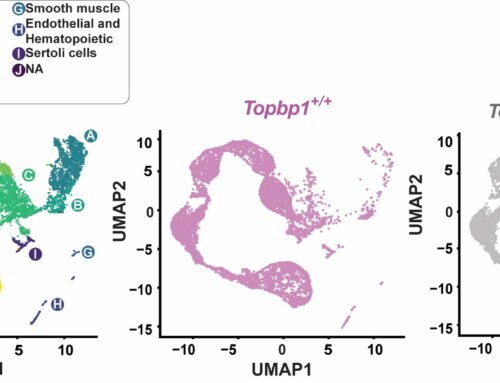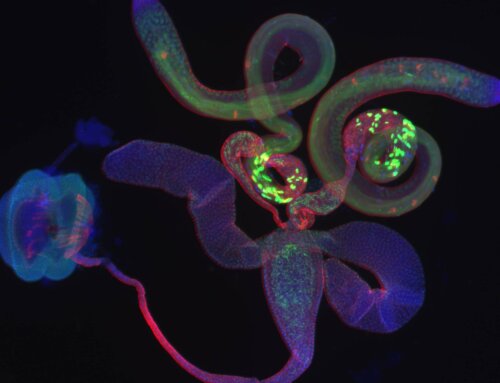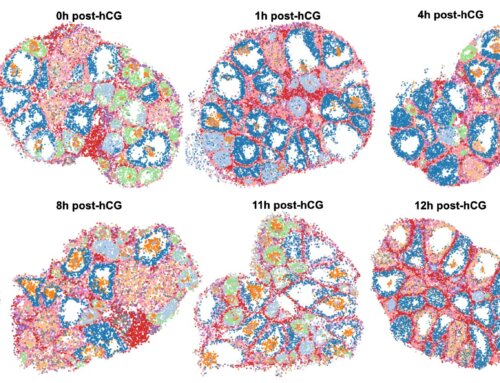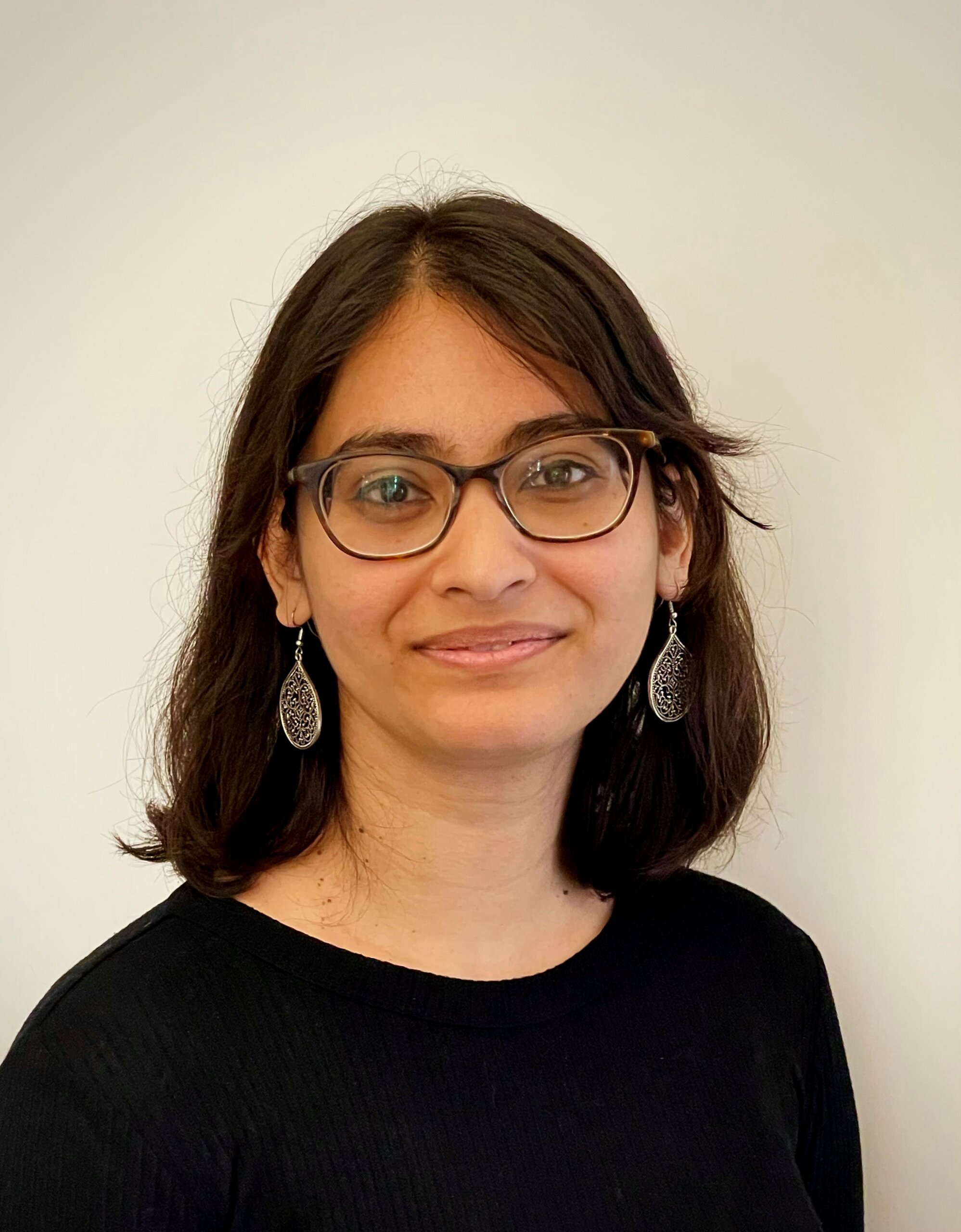
August 2023
The Biomedical Sciences Department at the Cornell University College of Veterinary Medicine is pleased to welcome Dr. Arunika Das, Ph.D., a postdoctoral researcher in the biology department at the University of Pennsylvania School of Arts & Sciences, who will join us as an Assistant Professor in February 2024.
- What aspect of your research are you most excited about right now?
- I am most excited about starting in vivo studies on centromere epigenetic inheritance. Centromeres are essential for cellular division but are specified epigenetically by a specialized histone H3, CENP-A. For decades, the field has been focused on epigenetic inheritance of centromeres in cultured cells. However, I am now perfectly poised to address unanswered questions on how a protein mark is preserved through the unique challenges presented by both gametogenesis and embryo development. For example, how do the centromeric nucleosomes survive the epigenetic reprogramming in embryos when all other epigenetic information is erased? Another outstanding question is how do these nucleosomes last through the extremely long and protracted arrest phase in mammalian eggs to preserve proliferation potential after fertilization? This is particularly exciting because it could provide clues to how the internal chromosome machinery reacts to an aging biological clock. How are centromeric nucleosomes maintained without decay while the egg ages? Altogether, it is an exciting time in the field of centromere and chromatin biology and epigenetics, as we start to explore these questions in vivo, by leveraging animal models across different species.
- What inspired you to study reproduction, in general?
- I was always fascinated by cell division and the mechanisms by which chromosomes segregate faithfully. Reproduction represents a unique form of cell division with many evolutionary adaptations and quirks. My first rotation in graduate school was studying kinesin motor proteins in Drosophila eggs in the McKim lab, and I was captivated by how the mitotic proteins are differentially adapted to perform meiosis specific functions. It amazed me that although so much was known about mitosis, we were only starting to decipher meiosis and germline epigenetic inheritance with tons left to discover. Since then, I have pursued female reproductive aging mechanisms, and epigenetic inheritance in early embryo development, which have so much left to explore.
- When you’re not doing research, what are your hobbies or non-work-related interests?
- I am usually at a ballet studio when I am not in the lab. I also like to read, learn new languages (learning French currently), and play the piano. I also love theatre and music shows and try to support the arts when I can.
- What is the most valuable piece of advice you’ve received over your research career?
- My mentors have given me several pieces of advice over the years. One was to focus and finish projects – it is way easier to start something exciting than to see it through to the end. It is also important to acknowledge and accept failures as that is intrinsic to what we do; what matters is the ability to persevere despite them. I appreciated greatly the advice to focus on what I love, pursue important and open questions, and take breaks to enjoy the life that we study through our science.
- Ideally, how do you envision your research contributing to the broader field of reproduction (be it societal, ecological, etc.)?
- There is a high incidence of mitotic aneuploidy in early embryonic divisions that impacts success rates of both in vitro fertilized (IVF) embryos, and natural embryonic mortality attributed to undetected embryo mosaicism. The underlying causes are still unclear, but embryonic centromere plasticity and its regulation could be a contributing factor, since the centromere recruits and directs the mitotic surveillance machinery. I envision that my work will contribute greatly by generating a holistic understanding of how centromeres, an essential structure for life itself, are inherited faithfully along with the chromosomes across different species. Uncovering the etiology of embryonic aneuploidy is essential to improve assisted reproductive technologies and ensure epigenome integrity in early development.
The female reproduction side of my research program studies how mammalian oocytes are inherently error prone and vulnerable to changes in levels of chromosome segregation machinery. Indeed, declining levels of chromosome associated proteins is a major cause of age-related oocyte aneuploidy. Overall, understanding how these proteins, including centromere histones, are maintained over long time-scales is crucial for us to identify the links between the internal segregation machinery and the external physiological factors that trigger female reproductive senescence. Eventually, the goal is to elucidate the molecular players that constitute the female biological clock. Understanding this clock and its constituents will spark the development of strategies to mitigate the impact of female reproductive ageing on women’s reproductive choices.
- There is a high incidence of mitotic aneuploidy in early embryonic divisions that impacts success rates of both in vitro fertilized (IVF) embryos, and natural embryonic mortality attributed to undetected embryo mosaicism. The underlying causes are still unclear, but embryonic centromere plasticity and its regulation could be a contributing factor, since the centromere recruits and directs the mitotic surveillance machinery. I envision that my work will contribute greatly by generating a holistic understanding of how centromeres, an essential structure for life itself, are inherited faithfully along with the chromosomes across different species. Uncovering the etiology of embryonic aneuploidy is essential to improve assisted reproductive technologies and ensure epigenome integrity in early development.


